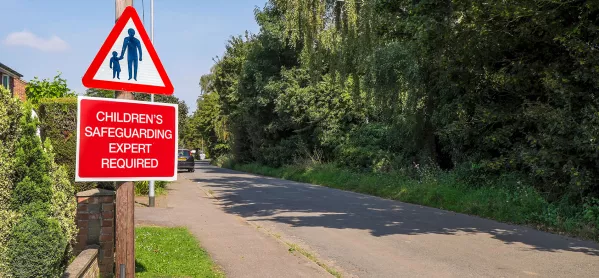The Department for Education is recruiting a national safeguarding expert aimed at strengthening the role of schools and helping them to work more effectively with other organisations in areas such as child protection.
The new role is being introduced at a time when schools warn they are taking on increasing responsibilities that would previously have been carried out by children’s or social services.
It also follows a DfE report published late last year, which found “a sense among some educators that they were powerless and that their professional judgement was not valued by children’s social services”.
A notice for the role of national child safeguarding facilitator (education focus) says this contract is worth £100,000 for a 17-month period, from 6 November 2023 until 31 March 2025. It is not clear whether this figure represents the facilitator’s salary. The DfE has not responded to a Tes question about this.
The notice describes the role as “a new post to reflect the reforms focused on strengthening the role of education in early help, child protection and multi-agency safeguarding arrangements”.
It will include “facilitating discussions with education settings and safeguarding partners on how effectively they work together”.
The individual will work alongside a national safeguarding facilitator with a background in local authorities.
Safeguarding: schools face rising pressure
Margaret Mulholland, SEND and inclusion specialist at the Association of School and College Leaders, cautioned against the new role being used to “further extend the delegated responsibilities of education for child protection more broadly, as schools and colleges are already carrying extra burdens as a result of the erosion of local support services”.
However, the union “welcomed” the opportunity to “capture skills and knowledge from the education sector and feed this more effectively into support for national safeguarding systems and processes”, she said.
The DfE advertisement says the education safeguarding facilitator will help to deliver the children’s social care reforms, as well as work on the arrangements between the education sector and child protection to allow them to better work on safeguarding together.
The successful applicant is required to have an understanding of the education sector and how it fits with local government, and an understanding of local safeguarding arrangements.
Safeguarding referrals in 2022 from schools were at their highest since the DfE started publishing figures in 2014: in 2022, 129,090 safeguarding referrals were made by schools in England.
However, school leaders are often left frustrated when referrals are simply bounced back to schools.
Tes revealed earlier this year that three-quarters of safeguarding referrals from schools were resulting in no further action being taken by local authorities, and schools were often using their own resources to challenge decisions.




